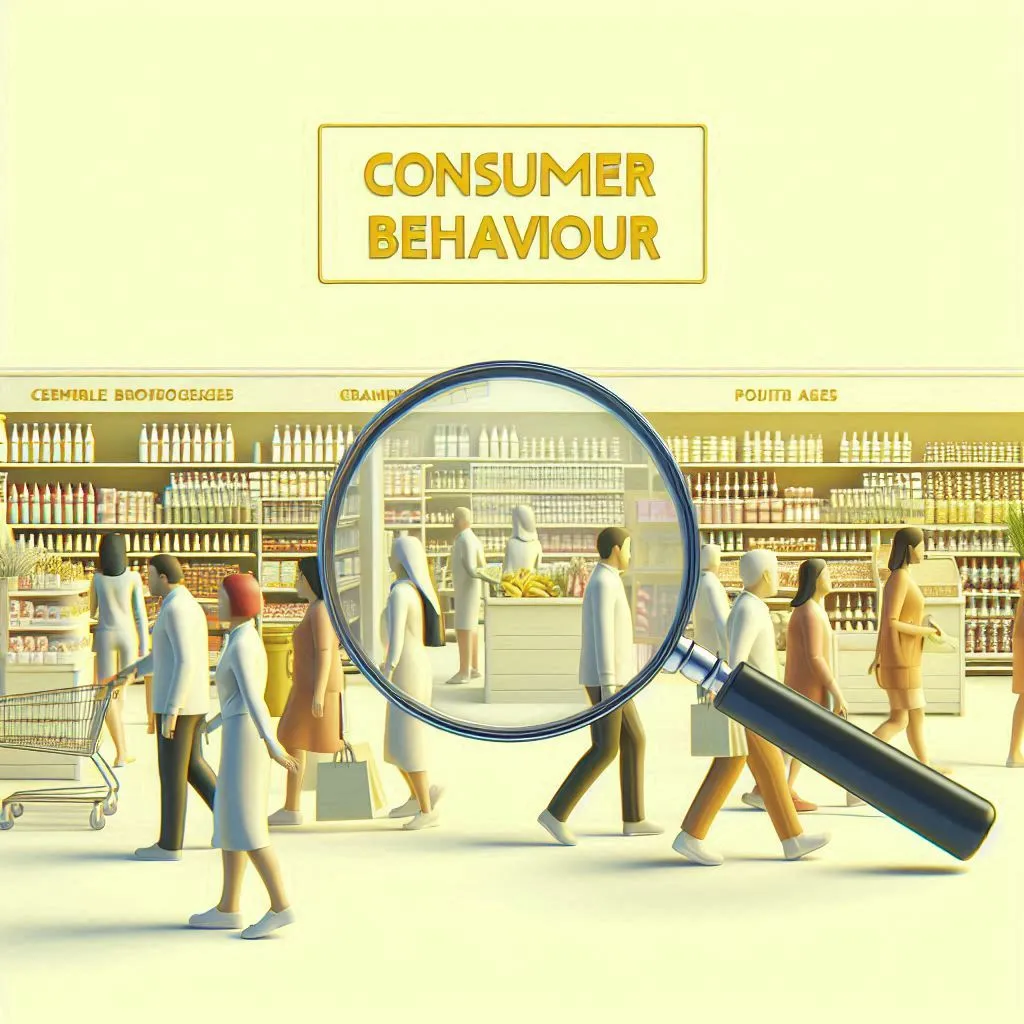
Why do people buy? This question keeps marketing experts up at night! The answer lies in understanding consumer psychology and the “why” behind purchase decisions. After all, you are selling to humans, not robots!
Knowing your audience’s demographics (age, income, location) and how they respond to marketing efforts provides valuable insights.
This blog dives into the psychology of consumer behaviour and shares 6 powerful techniques that can influence customer decisions.
Table of Contents
- Who are Consumers?
- What is Consumer Behaviour?
- 6 Principles That Influence Consumer Behaviour
- Present Consumer Behaviour Trends
- Conclusion
- Frequently Asked Questions
Who are Consumers?
You might be thinking, “Isn’t it obvious? Consumers are just people who buy from us!”
Technically, you are right. But the simple answer is that consumers are humans, just like you and me. They have emotions and desires, and being “sold” to them can feel pushy and inauthentic.
Think about it: if someone aggressively tried to sell you something, would you buy it? Probably not. You want to feel like you are in control of your decisions and that’s exactly how your customers feel too.
Now, you might be thinking, “But we need to make a profit! How else will we sell our products?”
That’s a valid concern. I’m not saying you shouldn’t sell, but rather that you should focus on the benefits, not the hard sell. Don’t just tell customers “Buy this!” Show them how your product or service can improve their lives and empower them to decide on their own.
That’s where understanding consumer behaviour comes in. By delving into how people make choices, you can learn to guide them towards saying “yes” to your product, naturally.
What is Consumer Behaviour?
It is trying to find out the answer to “why people buy”? It’s an area of psychology that focuses on the behaviour, motivation and psychology of customers. Customers’ responses to marketing campaigns and the reasons behind their purchases are greatly influenced by the following three areas:
1. Psychological factors
A person’s perceptions, attitudes and overall worldview have a significant impact on how they react to marketing, advertising, and public relations campaigns.
2. Personal factors
Consumer interests and attitudes are greatly influenced by audience demographics, including age, culture, career and background.
3. Social factors
How someone shops depends on their social circles. Their purchasing habits are influenced by their social position, money and educational level.
6 Principles That Influence Consumer Behaviour
As a brand, you are not just selling products, you are tapping into their psychology to influence their decisions. Let’s explore six key principles that subconsciously nudge them towards that “buy” or “shop” feeling.
1. Scarcity
This principle plays on our fear of missing out. When Apple announces a “limited edition” iPhone in a stunning new colour, the FOMO (fear of missing out) kicks in. We perceive these limited-time offers as more valuable, driving us to act quickly before they disappear. Similarly, airlines might offer “flash sales” on last-minute tickets, creating a sense of urgency to get a good deal.
2. Reciprocity
Humans have an innate desire to return favours. Companies should understand this and utilise reciprocity to build trust and loyalty. For example, Sephora’s generous free samples with every purchase make us feel like we are getting something extra, subconsciously encouraging us to return for the full-size product. Similarly, many gyms offer free trial memberships, creating a sense of obligation to try their services after experiencing them for free.
3. Consensus
We often rely on the opinions and actions of others to guide our own decisions. This is where social proof comes in. Brands showcase positive customer reviews, celebrity endorsements (think Nike and famous athletes) or influencer recommendations to build trust and convince us that “if everyone else loves it, it must be good.” Imagine browsing for a new pair of shoes online and seeing countless positive reviews – it subconsciously nudges you to trust the brand and consider buying.
4. Commitment
Once we make a small commitment, we are more likely to follow through on a larger one later. This principle is used by subscription services that offer free trials or freemium models with limited features. Spotify, for example, allows free music listening with ads, but to skip ads and unlock the full experience, you need a premium subscription. That initial commitment of signing up for the free trial makes us more likely to upgrade later.
5. Authority
We naturally trust figures of authority. Utilise this principle by featuring endorsements from doctors (think toothpaste commercials with dentists), industry experts or scientific studies to validate their product’s claims. For instance, a skincare brand might showcase a dermatologist recommending their product, adding a layer of credibility and influencing our decision to trust their claims.
6. Liking
People are more likely to buy from brands they feel a connection with. Companies build likeability through relatable advertising, humour, or social media personalities who resonate with their target audience. Think of Dollar Shave Club’s quirky and humorous commercials that make us connect with their brand on a personal level, making us more likely to choose them over competitors.
Present Consumer Behaviour Trends
The 6 principles of consumer psychology discussed previously provide a strong foundation for understanding buying decisions. However, consumer behaviour is constantly evolving. Here’s a look at some current trends that are influencing customers today:
1. The rise of the conscious consumer
Today’s consumers are increasingly mindful of the impact their purchases have on the environment and society. They seek brands that align with their values, prioritising sustainability, ethical sourcing and social responsibility. Patagonia, known for its commitment to environmental activism, is a prime example.
2. Increased personalisation
Today’s consumers are increasingly mindful of the impact their purchases have on the environment and society. They seek brands that align with their values, prioritising sustainability, ethical sourcing and social responsibility. Patagonia, known for its commitment to environmental activism, is a prime example.
3. The “experience” economy
Consumers are increasingly seeking experiences over just products. Brands are responding by creating interactive experiences that engage customers emotionally and create lasting memories.
4. Voice commerce
Voice assistants like Alexa and Google Home are changing the way we shop. Consumers are increasingly using voice commands to search for products, compare prices and even make purchases. Brands need to optimise their online presence and product information for voice search to stay ahead of the curve.
5. Convenience
The rise of e-commerce has revolutionised how consumers shop. Customers expect a seamless online shopping experience with a wide variety of payment options. Offering fast and secure checkout processes, diverse payment methods (including credit cards, debit cards, digital wallets like Paytm, Google Pay and even buy-now-pay-later options), and hassle-free return policies are crucial for capturing online sales. Amazon, with its one-click ordering and streamlined checkout process, exemplifies convenience in online shopping.
Conclusion
By understanding these six principles, you can gain valuable insights into consumer behaviour and craft marketing strategies that resonate with your target audience. Remember, it’s not about manipulation, but about building genuine connections. Don’t just sell, captivate your customers! Let our digital marketing company help you unlock the secrets of consumer behaviour and craft winning customer persuasion strategies. Contact us today at hello@florafountain.com and book a consultation call!





























